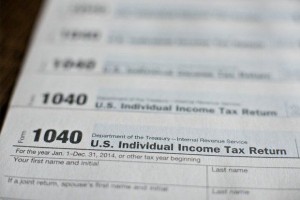 As taxpayers wrap up their returns for 2014, many have been faced with paying higher taxes on their investments. The run-up in the markets over the last few years has been a contributing factor in many cases, leaving many investors scratching their heads as to what to do.
As taxpayers wrap up their returns for 2014, many have been faced with paying higher taxes on their investments. The run-up in the markets over the last few years has been a contributing factor in many cases, leaving many investors scratching their heads as to what to do.
With tax rates on capital gains and qualified dividends as high as 20 percent in non-retirement investment accounts (even more for high-income earners), it is critical to have a plan to address this tax liability.Remember, by the time 1099s arrive in the mail, it is too late to do anything about the past year.
The good news is that there are many tax efficient investment strategies that may help to minimize investment taxes for this coming tax year - while you actually can do something about them.
Understand your rates
It is important to understand your exposure to taxes prior to realigning your investment plan to optimize tax treatment. For example, are you subject to AMT (alternative minimum tax) or the new 3.8 percent investment surtax? What is your marginal income tax rate and how does it differ from your capital gains rate?
Remember, assets held for less than one year are referred to as short-term capital gains and taxed at ordinary income rates while assets held for more than one year are taxed at the more favorable long-term capital gains rate.
The importance of tax planning increases exponentially if you find yourself in higher marginal tax brackets. Consider speaking to your tax professional to fully understand your exposure and susceptibility to taxes. Once you understand your tax exposure and potential liability, you can move on to developing strategies to reduce it.
Minimizing turnover
The measure of how often assets are bought and sold within a portfolio is referred to as "turnover" and the frequency of these changes can have a huge impact on investment taxes. Simply put, the more adjustments that are made to your investment portfolio, the more potential tax liability that you could be exposed to, even triggering the dreaded short-term capitals gains treatment for investments held less than one year.
Before implementing any investment plan outside of a retirement account, be sure to pay close attention to turnover. While it is not advisable to hold onto unsuitable investments just to avoid taxes, minimizing unnecessary transactions within your portfolio may help reduce future taxable gains.
Use different allocations for pre-tax and after-tax accounts: Different asset classes generate varying levels of taxable income. For example, taxable corporate bonds, high-yield bonds, real estate and other asset classes may produce income that could be taxable as ordinary income rather than capital gains.
As a result, it may be wise to keep these less tax-efficient investments within retirement accounts like a 401(k) or IRA as opposed to a taxable account. The income generated on these taxable investments can continue to grow tax-deferred within the retirement account as opposed to paying ordinary income tax along the way.
Consider tax-loss harvesting
Monitoring your investment portfolio for underperformers is important. After all, no one wants to hold on to assets that continue to decline in value. If you find investments in your portfolio that are trading at a loss, consider capturing the loss for tax purposes.
This may allow you to use the loss to offset other gains you may have now or in the future. Additionally, when a taxpayer's losses are greater than their gains, a portion of the losses ($3,000 per year) can be used to offset ordinary income. Tax loss-harvesting can be a great way to reduce the impact of investments that do not perform as well as you may have expected.
Be sure to carefully evaluate risk, volatility, investment fees and taxes before implementing any new plan. Working with financial and tax professionals can help you understand the impact of taxes on your investment portfolio and ensure you select right plan to minimize taxes for your unique situation.
Kurt J. Rossi, MBA is a Certified Financial Planner, Practitioner & Wealth Adviser. He can be reached for questions at 732·280·7550, kurt.rossi@lndependentwm.com or www.lndependentwm.com. LPL Financial Member FINRA/SIPC








